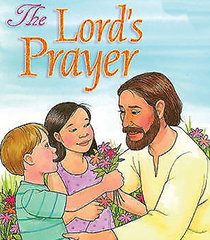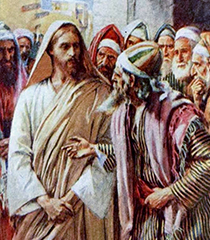The Request
The younger son asks for his inheritance early, which is a significant and disrespectful request, implying he wishes his father were dead. Nevertheless, the father complies and divides his estate.
Luke 15:13 (NIV):
"Not long after that, the younger son got together all he had, set off for a distant country and there squandered his wealth in wild living."
The Departure
The younger son leaves home and wastes his inheritance on reckless living, illustrating a life of indulgence and separation from family.
The Consequences
Luke 15:14-16 (NIV):
"After he had spent everything, there was a severe famine in that whole country, and he began to be in need. So he went and hired himself out to a citizen of that country, who sent him to his fields to feed pigs. He longed to fill his stomach with the pods that the pigs were eating, but no one gave him anything."
The Downfall
After exhausting his resources, the son faces dire circumstances during a famine. His desperation leads him to work with pigs, which would be particularly humiliating for a Jewish audience.
The Turning Point
Luke 15:17-19 (NIV):
"When he came to his senses, he said, 'How many of my father's hired servants have food to spare, and here I am starving to death! I will set out and go aback to my father and say to him: “Father, I have sinned against heaven and against you. I am no longer worthy to be called your son; make me like one of your hired servants.”'"
The Realization
The son reflects on his situation and remembers the abundance in his father's house. He decides to return, acknowledging his mistakes and planning to ask for a servant's position rather than restoration as a son.
The Return
Luke 15:20 (NIV):
"So he got up and went to his father. But while he was still a long way off, his father saw him and was filled with compassion for him; he ran to his son, threw his arms around him and kissed him."
The Father's Response
The father sees his son from a distance and runs to him, demonstrating immense love and forgiveness before the son even utters his confession.
Luke 15:21-24 (NIV):
"'The son said to him, “Father, I have sinned against heaven and against you. I am no longer worthy to be called your son.” But the father said to his servants, “Quick! Bring the best robe and put it on him. Put a ring on his finger and sandals on his feet. Bring the fattened calf and kill it. Let's have a feast and celebrate. For this son of mine was dead and is alive again; he was lost and is found.” So they began to celebrate.'"
The Celebration
The father immediately reinstates the son as part of the family, symbolized by the robe, ring, and a feast. This highlights the theme of unconditional love and grace.
The Older Son's Reaction
Luke 15:25-30 (NIV):
"Meanwhile, the older son was in the field. When he came near the house, he heard music and dancing. So he called one of the servants and asked him what was going on. 'Your brother has come,' he replied, 'and your father has killed the fattened calf because he has him back safe and sound.' The older brother became angry and refused to go in. So his father went out and pleaded with him. But he answered his father, 'Look! All these years I've been slaving for you and never disobeyed your orders. Yet you never gave me even a young goat so I could celebrate with my friends. But when this son of yours who has squandered your property with prostitutes comes home, you kill the fattened calf for him!'"
The Resentment
The older son feels overlooked and is angry about the lavish treatment his brother receives. He represents those who might resent grace extended to others, highlighting issues of jealousy and entitlement.
The Father's Explanation
Luke 15:31-32 (NIV):
"'My son,' the father said, 'you are always with me, and everything I have is yours. But we had to celebrate and be glad, because this brother of yours was dead and is alive again; he was lost and is found.'"
The Conclusion
The father reassures the older son that he is always loved and included, but emphasizes the importance of celebrating the return of the lost son.
Key Themes
- Unconditional Love and Forgiveness: The father's willingness to forgive and welcome his son back reflects God's love for humanity.
- Redemption: The younger son's journey illustrates the possibility of redemption and transformation.
- Grace vs. Merit: The parable challenges notions of fairness, emphasizing that grace cannot be earned.
Lessons
Acceptance and Forgiveness: We are called to forgive others, regardless of their past.
Humility and Repentance: Acknowledging our mistakes is the first step toward reconciliation.
Joy in Restoration: There is great joy in seeing others return to a right relationship with God.
The parable of the Prodigal Son serves as a powerful reminder of the themes of forgiveness, grace, and the loving nature of God, encouraging both acceptance of others and the importance of repentance.
 Shop
Shop Info
Info Words
Words World
World
















